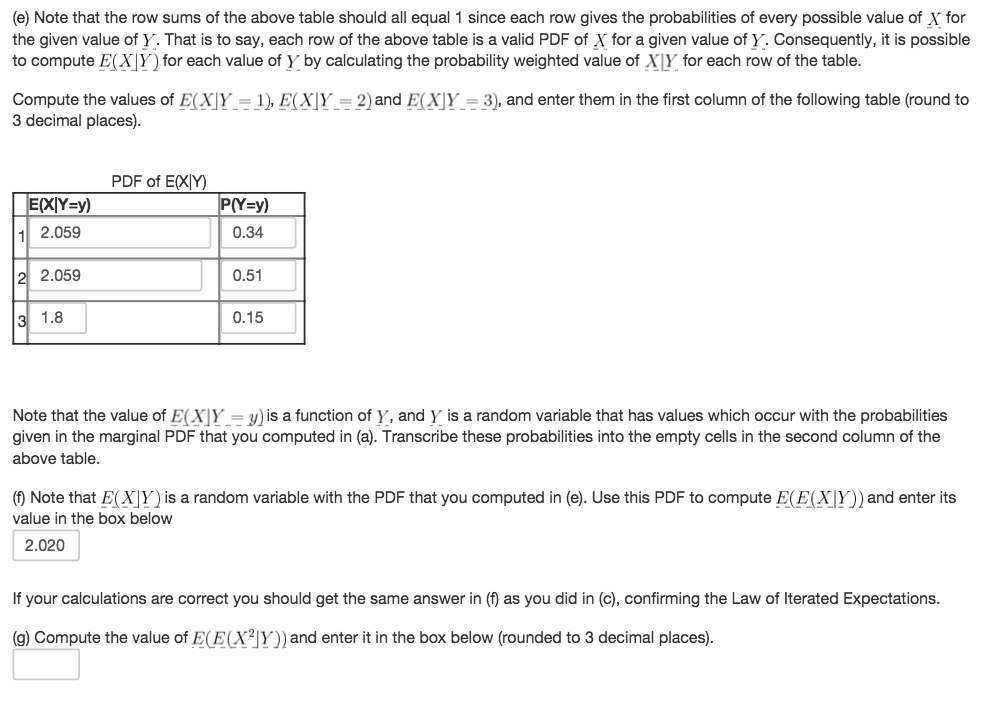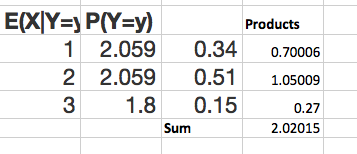What is the expected value of the expected of x conditional of y? $E(E(X|Y))$ and $E(E(X^2|Y))$?
I was doing this question. And got this result. But got stumped at the next question. Which asks me to find the expected value of the conditional probability.
I guessed and computed it like this. Getting $E(E(X|Y)) = 2.020$
I guessed and got $E(E(X^2|Y))= 4.840$



